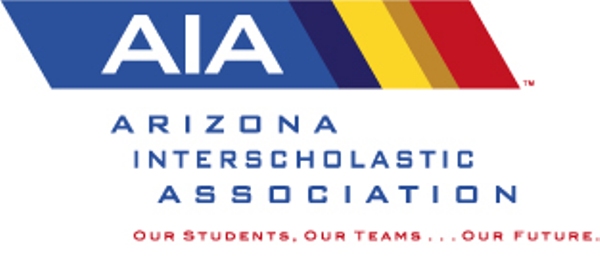In a special AIA Executive Board meeting conducted via Zoom on Thursday, the Board has endorsed a set of recommended guidelines produced by the Sports Medicine Advisory Committee for what a safe return to practice and competition could entail for the member schools.
Click here for the recommended guidelines
The recommendations by SMAC are meant to serve as a “living document” as the state goes forward with this process. The Board and SMAC may bring additional items forward in the future if a situation calls for it.
“Our priority through this is for the safety and well-being of all our state’s student-athletes and those that support them,” said Executive Director David Hines. “We are not guaranteed to have a fall season. We are preparing to be ready on time, but it will all depend on how this situation develops as the summer goes on. We just ask that schools, coaches, players and parents consider and utilize the guidelines until we get back to normal.”
The recommendations are based on the phased reopening of the state outlined by Governor Doug Ducey. However, local public health authorities are ultimately in charge of their communities. A recommendation by the AIA cannot supersede local ordinances. If a conflict was to occur, alternative activities may take place as long as they aren’t in violation of AIA regulations.
The AIA is currently in a period of summer participation as per the association’s handbook. It is up to schools and district personnel to properly monitor their own situations and only move forward when applicable and responsible. Emergency legislation was also passed by the Executive Board in regard to the preparticipation physical form that is required of all member school student-athletes. A waiver was approved to allow flexibility regarding certain completed physical forms already on file to apply toward the 2020-21 school year and alleviate some burden of families traveling to visit a medical professional during this time. Further guidance will be shared directly with the state’s athletic directors.
Phase 1:
Small group activities are permitted for 10 people or less with coach onsite, but public facilities (including gyms) remain closed.
All athletes, coaches, and other support staff must be free from symptoms for at least 14 days and no individual is in close contact with anyone who is sick within that 14 day period before group training may begin
All athletes, coaches, and support staff who are a member of a high risk group or live at home with a member of a high risk group shall only attend training sessions virtually.
Screening for symptoms occurs based on a daily COVID-19 symptom questionnaire of all participants including coaches and staff. If an athlete is showing any symptoms or discloses symptoms or illness, parent should be called and the athlete needs to be seen and cleared by a healthcare provider.
Temperature checks are strongly encouraged for all participants. Each athlete shall log their self-reported questionnaire and temperature on COVID-19 point of contact form, team shall maintain symptom logs. Parents, coaches, and athletes shall know signs and symptoms of illness. If athlete, coach, or staff member has signs or symptoms of illness or a person living in their home has signs or symptoms of illness they shall not come to practice and notify the team COVID-19 point of contact immediately.
Disinfecting and cleaning of all personal equipment and material shall occur before and after practice as well as any other time there is contact with another person.
Thatcher and Safford school districts were waiting for these guidelines to be released today to incorporate them into their own plans. Neither district would commit to a date but Safford Athletic Director, Toni Corona, said it would be no earlier than June 8th.
Pima School district did not respond to GilaValleyCentral’s request.









.jpg)